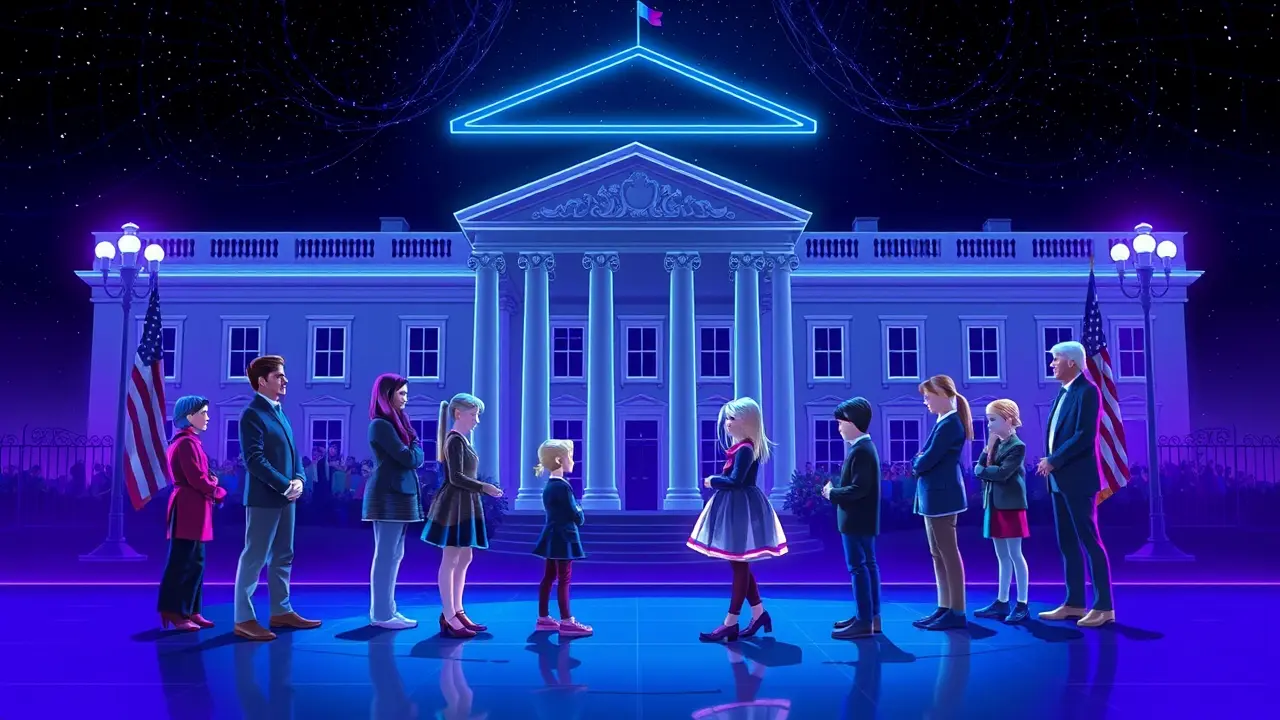Melania Trump Secures Return of Ukrainian Children from Russia
In a striking demonstration of diplomatic intervention that transcended traditional statecraft, former First Lady Melania Trump announced on Friday that she had personally secured the release of eight Ukrainian children forcibly displaced to Russia following Moscow’s 2022 invasion, revealing an extraordinary back channel of communication she established directly with President Vladimir Putin. This rare public announcement at the White House, a setting typically reserved for the pronouncements of her husband, then-President Donald Trump, peeled back the curtain on weeks of meticulous, behind-the-scenes diplomacy initiated in the aftermath of the Alaska summit between the two world leaders—a summit ostensibly focused on geopolitical grandstanding, yet one that Mrs.Trump leveraged into a deeply personal humanitarian mission. The plight of these children, tragically emblematic of the thousands estimated by various human rights organizations to have been unlawfully transferred or deported from occupied Ukrainian territories, represents one of the most harrowing and legally contentious facets of this conflict, a deliberate strategy condemned by the International Criminal Court, which has issued arrest warrants for Putin and his Commissioner for Children’s Rights, Maria Lvova-Belova, for their alleged roles in this systematic program.For Melania Trump, a figure often scrutinized for her reserved public persona and selective engagements, this venture into high-stakes international negotiation marks a profound and calculated evolution of her 'Be Best' platform, moving it from the domestic realms of child well-being and anti-cyberbullying into the brutal theater of war, suggesting a nuanced understanding of soft power that operates in the interstices of formal diplomacy. One can analyze this not merely as a singular act of charity but as a potent feminist intervention into a hyper-masculinized conflict, where the traditional tools of statecraft—military posturing and economic sanctions—had reached a stalemate; here, a woman, leveraging her unique position and perceived apolitical stature, achieved a tangible humanitarian outcome where entrenched foreign ministries had faltered.The psychological impact on these eight children, who have endured the trauma of separation, potential indoctrination in Russian re-education camps, and the severing of cultural and familial ties, is incalculable, and their return, while a cause for celebration, opens a complex chapter of reintegration, requiring specialized psychological support and a delicate process of reuniting them with families who may themselves be displaced or grieving. This operation inevitably invites comparison to other moments where first ladies have carved distinct diplomatic niches—Eleanor Roosevelt’s advocacy for human rights, Rosalynn Carter’s work on mental health, or even Michelle Obama’s global education initiatives—yet the direct negotiation with a pariah leader like Putin over an active war crime is arguably without modern precedent, setting a new and potentially controversial benchmark for the political spouses that follow.Critics will rightly question the optics and the precedent, arguing that such freelance diplomacy could undermine official state channels and potentially legitimize an aggressor, while supporters will hail it as a triumph of human-centric policy over political dogma. The deeper narrative, however, lies in the personal agency displayed; in a political landscape where women’s contributions are often sidelined or aestheticized, Melania Trump orchestrated a tangible result, forcing a conversation about who holds the legitimate power to negotiate for a child’s right to come home, and in doing so, she has irrevocably complicated the legacy of the Trump administration’s relationship with Russia, framing it not solely through the lens of election interference or sanctions but through the silent, determined work of bringing eight young lives out of the shadows and back into the light.
It’s quiet here...Start the conversation by leaving the first comment.
© 2025 Outpoll Service LTD. All rights reserved.
